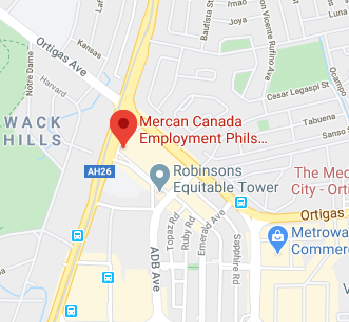Medical examination requirements versus admissibility assessments
There are distinct and separate provisions in the IRPA and the Immigration and Refugee Protection Regulations (IRPR) concerning the examination of family members and inadmissibility of family members.
The examination includes an Immigration Medical Exam (IME) as defined in R29 as well as a determination on all other inadmissibility provisions in the IRPA.
An officer may be satisfied that a non-accompanying family member is not inadmissible for criminality or security reasons based on information presented by the applicant. However, medical admissibility can only be determined once the family member has an IME.
The determination of whether an inadmissible family member renders a principal applicant inadmissible or not is a separate matter which is covered in if a family member was examined and found to be inadmissible.
With very few exceptions, non-accompanying family members must undergo IMEs.
The exceptions are listed in subsection R30(1):
- a family member of a protected person, if the family member is not included in the protected person’s application to remain in Canada as a permanent resident [R30(1)(e)]
- a non-accompanying family member of a foreign national who has applied for refugee protection outside Canada [R30(1)(f)]
Instructions on medical examinations can be found in the medical requirements PDIs, including how to interpret medical results to determine if the applicant is inadmissible on health grounds and what steps to take before informing applicants that their application has been refused for medical reasons.
Non-accompanying family members
Separated spouses
In instances when the principal applicant is separated from their spouse and the couple have not yet divorced, the separated spouse remains a family member as per R1(3)(a) for the purposes of examination requirements.
It should be noted that there could be situations in which R5(b)(ii), that details excluded relationships, applies to the principal applicant. This would be if the principal applicant is married but has lived separate and apart from the spouse for at least one year and is the common-law partner of another person (the common-law partner would therefore be the family member of the principal applicant for immigration purposes and the separated spouse would not require examination).
Dependent Children
All dependent children, as defined in [R2], require an IME, whether accompanying or not. An applicant is expected to make a reasonable effort to ensure all non-accompanying dependents are examined.
If a family member is not medically examined, the applicant may be refused failing to submit to a medical examination pursuant to A16(2)(b).
In the absence of an IME, an officer cannot be satisfied the applicant and their family members, whether accompanying or not, are not inadmissible [R70(1)(e) and R72(1)(e)(i)] or by virtue of applicable sections of a Temporary Public Policy.
Cases where non-accompanying dependents cannot be examined and there are Humanitarian and compassionate considerations
If an officer is satisfied that the applicant made a reasonable effort, but the non-accompanying dependant was unwilling or unable to be examined, the officer may determine whether there are sufficient grounds to waive these requirements through Humanitarian and compassionate (H&C) consideration. The authority to waive the requirement that non-accompanying family members be examined in order for a foreign national to become a permanent resident [A25 or A25.1] is outlined in IL 3 - Designation of Officers and Delegation of Authority.
This authority should be used in exceptional circumstances when the officer is satisfied:
- there are no restrictions on examination of H&C
- that the family member is unavailable to be examined;
- for example, whereabouts of separated spouse is unknown; or
- where it would be unreasonable to require examination in light of the circumstances of the case;
- for example separated spouse refuses to have an IME, or
- the dependent child’s other parent refuses to allow their child to undergo an IME, or
- a dependent, now over the age of majority, refuses to be examined.
- and the applicant understands that they may be barred from sponsoring that family member (R117(9)(d)) or R125(1)(d)) in the future.
In cases of H&C exemption
While the unexamined family members are not accompanying the principal applicant to Canada, officers must ensure they are included in the application in the Global Case Management System (GCMS) and set to non-accompanying. Case notes must reflect that the totality of the evidence has been considered and clearly explain why an exemption was granted.
Officer must ensure acknowledgement from the principal applicant that they may be barred from sponsoring that family member in the future be documented in the application.



